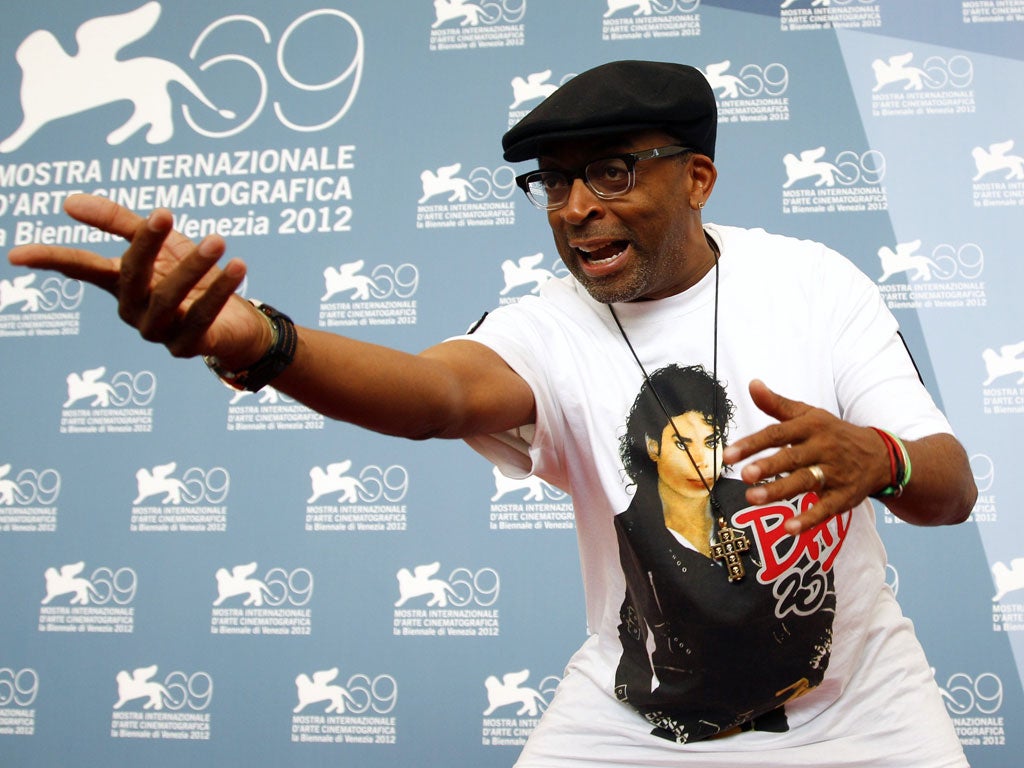First Night: Bad 25, Venice Film Festival
Spike Lee's documentary is an absorbing account but reveals little about what made Michael Jackson tick

Your support helps us to tell the story
From reproductive rights to climate change to Big Tech, The Independent is on the ground when the story is developing. Whether it's investigating the financials of Elon Musk's pro-Trump PAC or producing our latest documentary, 'The A Word', which shines a light on the American women fighting for reproductive rights, we know how important it is to parse out the facts from the messaging.
At such a critical moment in US history, we need reporters on the ground. Your donation allows us to keep sending journalists to speak to both sides of the story.
The Independent is trusted by Americans across the entire political spectrum. And unlike many other quality news outlets, we choose not to lock Americans out of our reporting and analysis with paywalls. We believe quality journalism should be available to everyone, paid for by those who can afford it.
Your support makes all the difference.Spike Lee's lengthy feature documentary about Michael Jackson (screening out of competition in Venice) was commissioned to mark the 25th anniversary of Jackson's 1987 album, Bad.
Lee offers an absorbing account of how Jackson and his collaborators (led by legendary producer Quincy Jones) put together an album that yielded five consecutive No 1 singles.
Sadly, what the film doesn't address in anything other than passing fashion is Jackson's biography or inner life.
There is a very affecting moment late in the film in which we see a montage of all Lee's interviewees talking about the singer's death. Their response is extraordinarily emotional.
Many break down on camera. While the doc makes it very obvious how highly these associates rated his professionalism, it doesn't tell us why they all cared for him so much.
Early on, we hear a quotation from a James Baldwin essay reflecting on Jackson.
"Freaks are called freaks and are treated as they are treated – in the main, abominably – because they are human beings who cause to echo, deep within us, our most profound terrors and desires," Baldwin wrote perceptively of the star whose life was raked over in such forensic and often prurient fashion by the media.
To his credit, Lee isn't in the interested in tittle-tattle about "Wacko Jacko". His intention is to highlight Jackson's artistry, while exploring, track by track, how one of his greatest albums was created.
Bad 25 is structured in conventional fashion, mixing talking head interviews with archive footage and concert performance. A greying Martin Scorsese is on hand to reminisce about the shooting of the video for "Bad". Scripted by Richard Price and featuring an early performance from Wesley Snipes, this was intended to give Jackson an edgier image.
Scorsese and the choreographers make it clear how involved the singer was in every aspect of this mini-epic. We learn that subsequent videos for the album were influenced by everything from Fred Astaire in Bandwagon to Orson Welles running through the shadows in The Third Man.

Watch Apple TV+ free for 7 days
New subscribers only. £8.99/mo. after free trial. Plan auto-renews until cancelled

Watch Apple TV+ free for 7 days
New subscribers only. £8.99/mo. after free trial. Plan auto-renews until cancelled
Lee is very good at revealing the painstaking process that went into recording the album: the endless demos that Jackson would record beforehand and the often extraordinarily subtle contributions of Quincy Jones and the sound engineers. The doc touches in wry fashion on the rivalry between Jackson and Prince. The interviewees range from Stevie Wonder, Mariah Carey, Sheryl Crow and Justin Bieber to Kanye West, and many of executives and engineers behind the scenes.
Surprisingly, Jones isn't interviewed (although there is archive footage.) There is also rousing material of Jackson performing at Wembley during the Bad tour.
Nonetheless, this isn't a particularly personal documentary. It lacks the polemical force and sense of rage that made earlier Lee docs like 4 Little Girls and When the Levees Break so distinctive. Lee makes a compelling case for Jackson as music's answer to baseball star Willie Mays, someone who could do everything. What he doesn't reveal is just what made the pop star tick.
Join our commenting forum
Join thought-provoking conversations, follow other Independent readers and see their replies
0Comments